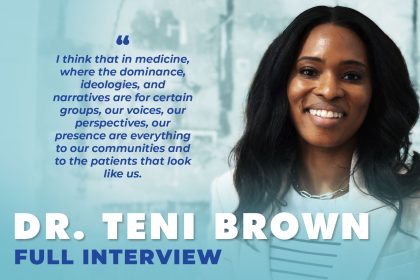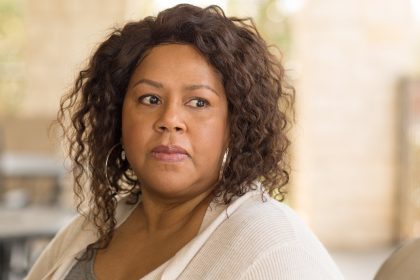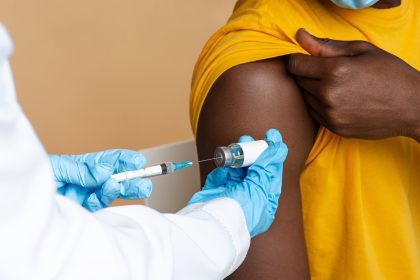In a compelling episode of Health IQ, Dr. Maya Green, founder and chief health and equity officer of Onyx Medical Wellness, shared critical insights about HIV prevention, testing, and treatment, particularly focusing on its impact on the Black community for National Black HIV/AIDS Awareness Day. The Chicago native, whose expertise spans family medicine and health equity, brought her extensive experience, addressing the current state of HIV in America while emphasizing the importance of regular testing and dismantling stigmas that prevent open discussions about sexual health.
What is the current temperature on HIV awareness?
HIV first hit the United States in the 1980s, since then, the face of HIV has changed, it had many different faces over many different times, why? Because HIV stands for human immunodeficiency virus, and it doesn’t care what color you are, what gender you are, or what background you are, it’s a virus that moves from person to person, trying to reproduce, and while it’s doing that, it’s tearing away at our immune system, that’s why it’s called human immunodeficiency virus.
Now, what’s the temperature on that? It depends on where you look, because even though in the 1980s we had resources, when HIV was in other communities, the resources and the structure doesn’t look quite the same in the Black community. Black Americans bear the brunt of HIV, late diagnosis, something called AIDS, we’ll get into, Black Americans bear the brunt of it, and Black Americans bear the brunt of deaths related to HIV. In this day and age, in 2025, that does not need to happen, that’s why I’m so glad to be here and answer any questions you may have.
Are people going to stop having sex?
Eight billion people on the planet, right? Why? Because sex is how humans stay on the face of the planet, if we did not have it, we would be extinct. I was raised in different worship centers, but wherever you go, they say, “If you’re under the sound of my voice, everybody looking and listening.” You’re here because there was sexual activity, because there was intimacy, we have to recognize that, ignoring it is one of the ways we stigmatize just the presence of our sexuality, the presence that it exists, and we put HIV in a place where it can be insidious and travel untalked about in certain communities. So no, people are never going to stop having sex, if they do, we will be extinct.
What is the role of testing?
There are several different places, you can look at the CDC, you can look at the US Preventative Task Force, and some of that is actually made and created by people that don’t look like us, so that speaks to representation. People from these communities, severely impacted, need to be at that table, because if you’re not at the table a lot of times, you’re on the menu. So let’s talk about some of the recommendations, the current recommendation is everybody 13 to 64 have an HIV screening at least once in their life, or if you’re deemed high risk by your medical professional.
Now, how many of us are going to medical professionals? They don’t know anything about us but what we tell them, they don’t know anything about where we live, where we eat, where we love, and so, a lot of times, are unaware of the prevalence of HIV in certain communities. There are 1.2 million people living with HIV in the US, some areas have triple, sometimes quadruple the rates of HIV than other communities, so where you live and love plays a high role.
Once again, the written recommendations are 13 to 64 at least once, but then, if you’re deemed high risk, you should get it 6 months to annually. Now let me tell you something, when I said HIV doesn’t care about race, color, religion, gender, HIV also don’t care about that set guideline, why? Because HIV stands for human immunodeficiency virus. So here’s what I’ve seen in my career, if you are human and you have an immune system every year when you go and get checked for diabetes, screen for cholesterol, screen for hypertension, those type of things, screen your immune system. If you have an immune system, screen it just like you screen your colon, your heart, your pancreas, your eyes, screen your immune system, so do it every year is my recommendation.
Why is it smart and intelligent to get tested?
If you’re an active human having sex, but also, if you’re a human with an immune system, because HIV is spread from mother to baby, is spread from reuse of needles, people say reuse of needles, and they think people who use drugs, how about people injecting semaglutide or ozempic, or whatever you’re doing, how about that anytime you’re reusing needles for any reason, anytime there’s something sharp and an open source on your body, you should get screened, now it just makes sense because we live in a time where the picture of HIV, the course of it isn’t what it used to be. A lot of people think, oh, if I’m living with HIV, I’m going to have some people saw that movie Philadelphia, the Dallas Buyers Club, where the medicines were so harsh, or the outcomes of living with HIV in Philadelphia, where you had the sores and things like that, and that was when we didn’t have medicines to treat, and we didn’t have medicines to help.
Now, the medicines have been so updated, we used to take medicines several times a day, and the medicines had abdominal pain and things like that. Now we have medicine you take once a day, every day, we have a medicine that you can get an injection every other month, and the side effects aren’t what they used to be. So it’s smart to go get screened, because if I’m living with HIV and I get screened early, my viral load, the amount of virus in my body never gets high enough for me to transmit to my child my partner, anything like that.
Personal benefit for me, I don’t have chronic illnesses like arthritis, heart disease, things that come on because HIV tries to attack your immune system, and what does your immune system do? It goes ham, 0 to 100 real quick, so if your immune system sets you in flare, the outcome of that chronic stress, and things like that on your system is our bodies age sooner. So if I’m living with HIV, and I get screened, I take the medicine, I bring that viral load down the immune system calms down, and I don’t have that chronic aging, I’m free to live in love, and I’m not spreading it to my babies or my loved ones, so it just makes sense to do.
What should we be talking about regarding Black women and HIV?
Well, depending on what year it comes out, we know that black women are 14 times more likely to be diagnosed with HIV compared to white women, and 5 times more likely compared to our Latina sisters, why? Because it’s not talked about in our communities, and because it, again, going to a lot of care providers that don’t align with your personal experience, or don’t know the prevalence in your neighborhood, so you adding that to the screening, as a black woman, I say, “Hey, I’m here for my screenings, and here are the screenings I want.”
What role does taking charge of our health play?
A lot of times we have to take charge of our own health, and I want to encourage people to do that, because if you think about the history of black women in this country, black women have always served others, and are coming to a greater realization that that needs to come right back around. I’m not gonna say we need to just be served because it’s our nature, it’s our nature to serve others, but I just want to encourage us to bring it right back around and expect other people to serve us, so when you go to the doctor, expect your doctor to serve you.
Come with a list of things that you want, include HIV in your annual screening, because black women are 14 times more likely than white women, and 5 times more likely than our Latinas to be diagnosed with HIV. Also, if you’re a black woman, I want to introduce you to something that’s out there for us a lot of times, it doesn’t come with our picture, it doesn’t come with our language, so a lot of times we don’t know it’s for us. There’s something called PrEP, pre-exposure prophylaxis, it’s a medicine you can take every day, and now medicines, injectables, you can take every other month to prevent HIV from taking hole in your body, should your body encounter it, so 2 things get your screening.
We always talk about primary prevention, secondary prevention, tertiary prevention, primary prevention, everything I want to do as a black woman or other woman to keep HIV out of my community, what is that? Condoms is an option, but also, if I’m not ready to use condoms by my choice, but if you are wanting to use condoms, don’t be afraid to take that initiative and make sure they’re used.
What do you take that’s 99% effective in blocking HIV from your body should your body encounter it, primary prevention. Secondary prevention, getting my screenings annually, when I go in and get my screenings for all other things, include that. Let your doctor know, don’t just go in there and say, “Oh, my doctor said, I’m getting screened for everything” that means everything your doctor thinks you qualify for it, again, if your doctor is not from your background and don’t get mad at me, it’s an article in the Journal of American Medicine, if your doctor’s from different backgrounds, serve and have different outcomes. Patients who go to black doctors who are black have better outcomes, they get screened more efficiently, and things like that, that’s my secondary prevention.
Tertiary prevention, if I’m a black woman living with HIV, I get the screening, what are you going to do about it? A lot of times, we don’t want to go to screening, this is like, if I get diagnosed, what am I going to do about it? It is not a death sentence for you or your partners or your children. There’s something called U equals U, undetectable means untransmittable, I’ll get into that, but you start to take medicines, take it every day by pill or every other month by injection, coming down the pike are some medicines you will take every 6 months by injection. We have all kinds of advances in the field of HIV, I’m just excited places like Rolling Out are doing things, we’re advancing our conversation.
What is stopping honest conversations about sex with sexual partners?
We got to take back history, going back to black women taking care of everybody else, mentally, physically, spiritually, and if you look back in history sexually, a lot of times owning our own sex or owning our own intimacy, has been frowned upon by the general population. If you were also raising several worship centers, when I say Jezebel, there was actually a study to do this, when I say Jezebel, the first person that pops in your mind, it’s a black woman, where did they write Jezebel was black? Nowhere. It’s social conditioning, and so it gives the idea that if you speak about intimacy, your personal desires, instead of being a servant to other people in a lot of ways, including sexual, then you’re fast, you’re loose, you’re a woman of the night, you’re all these other things. So it’s social conditioning, but also in our community there’s an increase of something called stigma. Stigma is when there’s, again, social conditioning surrounding thoughts of a certain thing, a certain group of people, that kind of thing, we’re talking about HIV in this case, where the facts aren’t even true, people just think it something like I’ll think of a positive thing, Santa Claus.
If you’re a sexual being, which obviously our parents were, and we are, people have sex, but we still, once you found out Santa Claus wasn’t true, you still went and told your kids that Santa Claus was true, you still acted like Santa Claus brought you those things because it was traditional, social culturing. The same thing is happening in a negative way when it comes to HIV stigma. I always say it’s an infectious disease of the mind kills more people than HIV ever could, and it spreads faster than any disease I know.
Can you explain the concept of U equals U?
There are 2 things, there’s something called U equals U, undetectable equals untransmittable, I mentioned it earlier. We live in a time where HIV needs 2 things, somebody to give the virus and somebody to get the virus. We live in a time where, no matter where I am in that equation, I can do something about it, if I’m living with HIV, I take my medicines, 0 times in history has someone undetectable transmitted it to their babies, their partners. If I’m not living with HIV, I can love someone living with HIV, let’s take that stigma right off, because I can take PrEP injection every other month or daily medication to prevent it, I want people to be aware of that. Don’t be afraid to reach out to Rolling Out, or myself, if you want more information on how you can be part of the solution.













